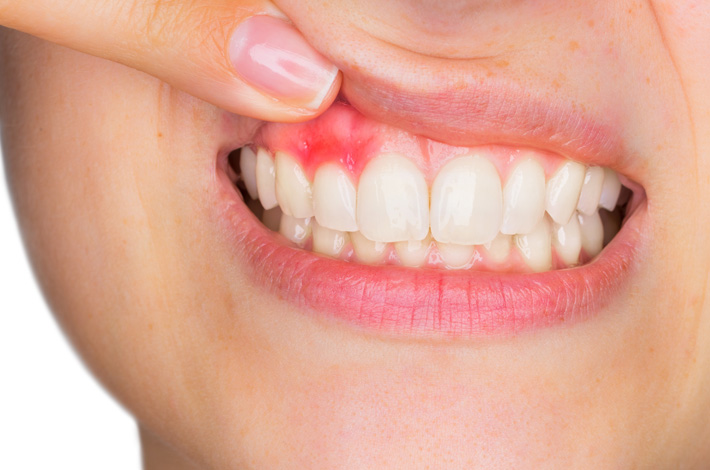Bleeding Gums Treatment Melbourne
Are you suffering from bleeding, swollen or tender gums? You may have Periodontal Disease…
Factors contributing to periodontal issues include diet, oral hygiene habits, and the use of specific medications.
Understanding Bleeding Gums and Gum Disease
Gum disease is caused by the buildup of dental plaque on your teeth and can affect your oral health. Most individuals experience gum disease at some point in their lives. Bleeding gums, particularly while brushing your teeth, are a telltale sign that gum disease is present. It is essential to note that bleeding gums are not normal, regardless of your age.
Maintaining gum health is crucial to prevent gum inflammation and the development of gum disease. Good oral hygiene habits, such as twice-daily brushing and using dental floss, are necessary to keep your teeth clean and reduce plaque bacteria. Additionally, electric toothbrushes can aid in improving periodontal health and preventing bleeding gums.
Professional treatment from a dental professional is vital in managing bleeding gums and addressing the cause of bleeding gums. Regular dental visits and following your dental professional’s recommendations can help maintain your oral health and prevent gum problems, such as gum tissue inflammation, tooth loss, and sensitive gums.
Oral health foundation guidelines suggest that quitting smoking, reducing sugary food intake, and ensuring an adequate intake of vitamin C can help support your body’s immune system and keep your mouth healthy. Pregnant women and those on blood thinners should be especially mindful of their gum health and oral hygiene.
In summary, the key to preventing gum issues, such as inflamed and bleeding gums, lies in maintaining a good oral care routine and seeking professional treatment when necessary. Regular dental check-ups and a commitment to good oral hygiene can help reverse gingivitis, soothe inflamed gums, and stop bleeding.
Indications of Possible Periodontal Disease:
Swollen, bleeding gums, receding gum lines, loose teeth or dentures, and persistent bad breath are common signs that you might be experiencing periodontal disease. Consulting a dental professional like Dr Zamani is crucial to pinpoint the cause of your gum-related issues.
A thorough dental examination, encompassing a gum assessment and X-rays, can help identify areas of concern and direct the appropriate treatment for bleeding gums. To prevent gum problems and preserve periodontal health, it is vital to adhere to good oral care habits, such as brushing your teeth twice a day, using dental floss, and scheduling regular dental check-ups.
Swollen or sensitive gums, mouth ulcers, and gum inflammation may suggest a milder form of gum problem known as gingivitis. The Oral Health Foundation advises quitting smoking, minimizing sugary food intake, and maintaining proper oral hygiene to ward off gingivitis and promote overall oral hygiene.
Using an electric toothbrush and taking vitamin C supplements may help alleviate inflamed gums and halt bleeding. Nonetheless, it is essential to seek advice from your dental professional for personalized recommendations and to take into account any underlying health conditions, such as blood thinners or pregnancy, that may impact your gum health.
Always follow your dental professional’s guidance and regularly visit your dentist to ensure the continued health of your gums and teeth.
What Causes Gum Disease and How to Prevent It?
Gum disease is primarily caused by poor oral hygiene, which allows dental plaque to accumulate around teeth and gums. Factors that can increase the risk of gum disease include smoking, hormonal changes (e.g., puberty or pregnancy), diabetes, stress, and poor nutrition. Consuming sugary foods and neglecting dental work can also contribute to the problem.
It is essential to maintain good oral hygiene to prevent gum disease, such as gingivitis (a mild form of periodontal disease). Brush your teeth at least twice a day, floss regularly, and visit your dentist for check-ups and cleanings. Additionally, ensure you have enough vitamin C in your diet and consider using clinically proven oral care products. Keep in mind that product manufacturers should address safety and health claims.
Contact your dentist immediately for a proper diagnosis if you are experiencing swollen or bleeding gums. Bleeding gums can be a sign of gum disease, which may require treatment to stop the bleeding and prevent further complications. Quitting smoking and improving blood flow can also help stop gum bleeding.
Periodontal treatment
Periodontal treatment typically involves a personalized plan based on your specific gum disease. Treatments may include:
Scaling– removal of plaque and calculus above and just below the gum line,
Root planing– removal of plaque and calculus from tooth roots, and
Medication – antibiotics to help the immune system fight infection.
Treatment may be carried out over several visits to your dentist. Regular dental visits can help detect and prevent gum disease early, ensuring a healthy smile for years to come.
IF YOU NEED A DENTIST
Prioritize oral health to prevent gingivitis and periodontal disease caused by sweet food and poor dental care. Brush your teeth regularly, consume sufficient vitamin C, and quit smoking to maintain healthy gums. Visit your dentist for clinically proven treatments to stop gum bleeding and ensure optimal immune system support.















